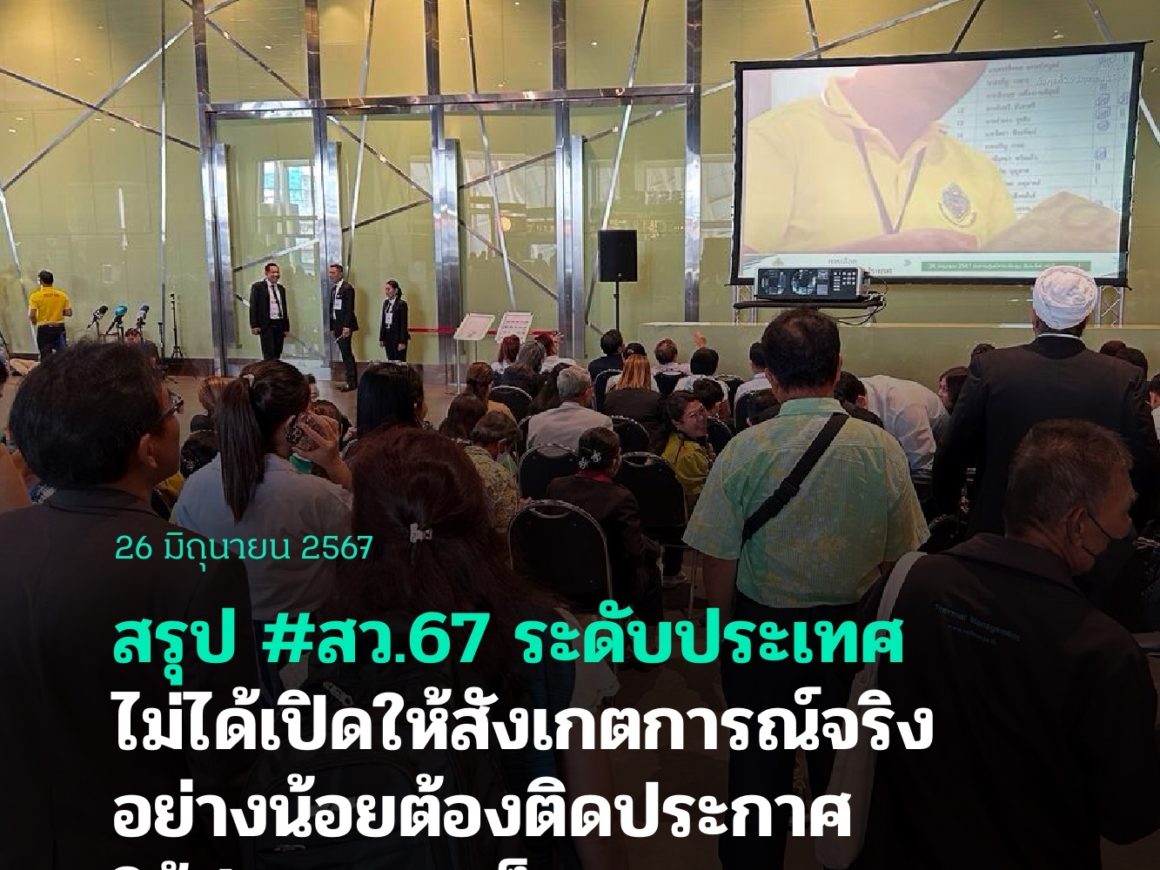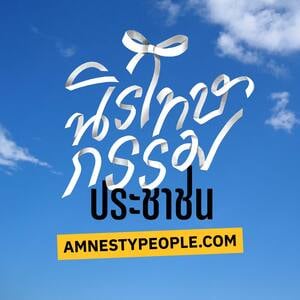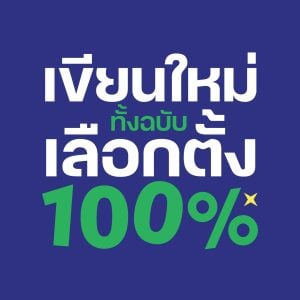
The Senate Question has been a point of contention in Thai political debate. For the past 5 years, the 250-members body, who was handpicked by the military, has been functioned as intended in preserving the status quo.
But these old guards’ days are numbered, literally. The current Senate will expire on 11 May 2024, and their replacements would differ in form, selection process, as well as their sway over Thai politics.
Who are the new Senators?
The new batch of Senators consists of 200 members selected from 20 social and professional groups, with 10 members from each group. These groups comprise a mix of professionals in private and public sectors, as well as identity-based groups such as women and persons with disability. If an aspiring candidate is eligible in more than one group, they have the liberty to pick a group to apply.
List of the 20 social and professional groups
- public administration and security, including government officials
- law and justice administration, including judges, public prosecutors, policemen, or legal practitioners
- education, including teachers, instructors, researchers, educational establishment administrators, or educational personnel
- public health, including doctors, medical technologists, public officers, nurses, pharmacists
- rice farming or herbaceous plants
- plantation, forestry, livestock, fishery
- employees in private sector
- environment, town and country planning, immovable property and public utilities, natural resources, energy
- small and medium business owners
- group of persons engaging in undertakings other than those under (9)
- tourism, including business operators, tour guides, hotel business operators or personnel
- industry operators
- science, technology, communications, innovation development
- women
- elderly, persons with disability or infirmity, ethnic groups, other identity groups
- arts, cultures, music, performance and entertainment, or sportsmen
- civil society or non-governmental organisations
- mass communication or authors of literary works
- freelance workers
- any other group that does not fall into above groups
Like its predecessor, the new Senate has a term of 5 years and is not eligible to rerun.
How are they selected?
The selection process is in essence an election, albeit for the few.
In the so-called intra-group election, candidates cast votes among themselves within the same group. Those ranked top 5 proceed to the second round where they vote for candidates from other randomized groups. This process repeats at the district (Amphoe), provincial (Changwat), and national level, with the winners of each level advancing to the next step.
At the national level, 10 candidates who receive the most votes from each group will join the new Senate.

The upshot of this process is only those who apply for candidature can vote.
With the application fee of 2,500 baht, it is essentially an election in which desired voters have to pay a poll tax in order to have their voice heard. In 2018, a process akin to this intra-group election was implemented to find 200 candidates for the NCPO, who then picked 50 finalists. According to the ECT, there were 7,215 candidates, an equivalent to 18 million baht in application fee alone.
Who can apply?
A seat in the Senate is not open for everyone, with age as the most striking qualification. Candidates must be at least 40 years old at the time of application, ruling out a large swathe of young Thais who have become more politically vocal in recent years. They are also expected to possess at least 10 years of knowledge, expertise and experience in the field they apply for, though how to prove such expertise remains unclear.
Members of political parties and public servants are barred from running for the Senatorial office, while those who were in public office must wait five years before they can apply.
The to-be Senator has four choices on where to apply.
- District in which he or she was born
- District in which he or she was or has been listed in the household register for a consecutive period of no less than two years
- District in which he or she was or has worked for a consecutive period of no less than two years
- District in which he or she studied for a consecutive period of no less than two years
Along with the freedom to pick social or professional group in their application, candidates can also choose among districts as long as they meet the qualifications. In practice, a savvy candidate would be more incline to file their candidacy in a sparsely populated district and in an unlikely professional group to maximize their chance of being selected. Competitive provinces like Bangkok and groups like farming thus might not put the candidate in the best position to advance.
When does the selection process start?
Ideally, it could start immediately after the current Senate expires on 11 May 2024. But it all depends on the cabinet to issue a decree to kickstart the process. Once the decree is declared, the laws are so specific on the timeline that it could conclude in 64 days at most.
Within 5 days after the decree is issued, the ECT must declare the date of the following
- Applying date which has to be within 15 days after the decree is issued, and has the period of 5-7 days
- Date of selection at
- District level. Must be within 20 days after the last day of the applying period
- Provincial level. Must be within 7 days after district level
- National level. Must be within 10 days after provincial level
The tentative timeline is as followed
- 11 May 2024 – Military-appointed Senate expires
- 12 May 2024 (at the earliest) – Cabinet issues a decree
- Within 17 May 2024 – ECT declares date of filing application for candidature and selection at every level
- 27 May to 2 June 2024 – Application opens
- Within 22 June 2024 – Selection at the amphoe level
- Within 29 June 2024 – Selection at the provincial level
- Within 9 July 2024 – Selection at the national level
- 14 July 2024 (at the earliest) – ECT publishes the result in Royal Gazette
During this selection process, the military-appointed Senate will remain in power. The longer the cabinet delays the decree, the longer the current Senate stays in the Thai political drama.
What can they do?
Luckily, the new Senate does not participate in the PM vote. But it nonetheless retains substantial amount of power, enough to shape the course of Thai political trajectory. Among them are
- Voting (and vetoing) on constitutional amendment proposal. Any proposal to amend the constitution is still subjected to the same rule that has produced numerous gridlocks in Thai politics. The first and third reading require an absolute majority of both houses along with at least one-third of the Senate to approve the proposal. In effect, this is equivalent to a veto power by the Senate, a tactic that has been deployed almost two dozen times in the past four years.
- Endorsing candidates to independent agencies. The Senate holds the power to endorse and vote on candidates to independent agencies such as the much-criticized ECT, Constitutional Court, or National Anti-Corruption Commission, to name a few. These agencies have been notoriously known for thwarting any attempts for political reform in Thailand.
- Legislative duties. As an upper chamber, the Senate is a critical part of the legislative process. Any bill approved by the House of Representative could be amended or delayed by the Senate. The House can override the Senate’s rejection of a bill after 180 days.
- Check and balance. The Senate provides a check and balance to the government. This includes interpellation, or submitting the motion for a general debate on the performance of a minister or government’s policy.
So, what all the fuss is about?
What the constitutional drafters envisioned as an election among an exclusive club of the nonpartisan experts will turn out to be an election for the elderly, wealthy, and well-connected few.
The intra-group election inevitably encourages vote-buying scheme. Who gets the ticket to the next round or ultimately the Senate seat depends on the ability to pack certain district. In fact, the selection process in 2018 was allegedly plagued with vote-buying. Desired candidates utilized their network through professional and personal connection, and paid the application fee (plus some ‘transportation fee’) to canvass people to vote for them, according to a former candidate who participated in the process.
In 2018, a small district could use up to 20 paid candidates to guarantee that the payer would advance to the provincial level. Supposed a vote costs 3,000 baht (2,500 baht application fee and 500 baht transportation fee), one would need to spend 60,000 baht at the mere district level and is expected to pay more the higher he or she goes. This figures would jump exponentially the more candidates in a district are.
Additionally, while the minimum age is 40 years old, the reality is much older. As the serving government official is not eligible to run, seats in groups such as public administration or legal profession, most of whom are public servants, are essentially reserved for retirees. The selection process also requires commitment of time and energy, which those with full-time job might not have the luxury to participate.
This doesn’t sound right, but what can I do?
Go out and run! Thai civil society and activists have launched a campaign ‘Run to Vote,’ calling for any qualified Thai citizens to run in the Senate race regardless of their genuine intention to become a Senator. The more people apply, the more difficult and costly it becomes for a malignant candidate and vote-buying scheme to guarantee the result.
More people at the table also means more watchful eyes. This is to increase the transparency in a process otherwise designed to be exclusive.
And who know, this might produce a Senate vastly different from what we have experienced, and turn the once-powerful anti-democratic bastion on its head.
To read more details, please see (in Thai) https://www.ilaw.or.th/articles/16805


















